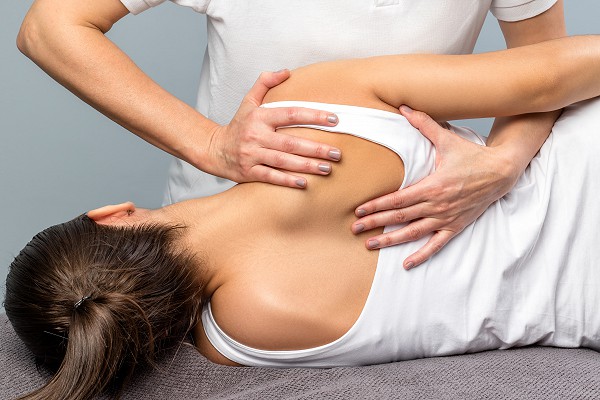A Complete Osteopathy Guide: Everything You Need to Know

What is osteopathy?
Osteopathy contains the manipulation or joints to pleasure whole systems of the body. Osteopath Dover takes a holistic, whole-body methodology to healthcare.
It uses manual ‘hands-on’ techniques to recover flow and correct transformed biomechanics, without the use of medicines.
Facts about osteopathy
- Osteopathy uses a drug-free, autoimmune form of manual medicine that concentrates on the health of the entire body, not just the damaged or pretentious part.
- The osteopathic physician emphasises on the joints, muscles, and backbone.
- Osteopathic mediation can help treat arthritis, back pain, headaches, tennis elbow, gastric issues, and postural complications.
- An osteopathic physician does not focus only on the pretentious area but uses manual methods to stabilize all the body systems and to provide overall good health and comfort.
- Treatment can also succour with sleep cycles and the nervous, circulatory, and apathetic symptoms.
How osteopathy functions
Osteopathy is an ordinary form of drug that assesses the body as one symbiotic and continuous system. Theoretically, Osteopathy intends to renovate normality and function throughout the complete body by formatting the cause of imbalance and anxiety.
The whole-body approach to wellness that Osteopathy contains manual techniques otherwise known as manipulative medicine.
This contains a subtle, natural manual influence of bone and soft tissue within the bodies’ boundaries. An Osteopath will use a light physical pressure to catch the increased musculoskeletal quality and work to relieve any pressures with a very slight palpation.
What can osteopathy treat?
Osteopathy can give alleviation and treatment to a wide scope of conditions.
These include:
- Joint pain
- Foot back torment, neck agony, and sciatica
Hand, shoulder, and elbow torment
Cerebral pains
Tennis and golf player’s elbow
Postural issues because of pregnancy, sports injury, driving or work strain, or stomach related issues
Osteopathic doctors can likewise find illnesses that are not treatable through osteopathy, to elude patients to change subject stock experts.
As well, the moderate approach that Osteopathy includes makes it both safe and helpful for pregnant people, newborns & children.
- During and after pregnancy
It is not unusual for a person to experience inequalities in their body both during and after pregnancy. Physical Osteopath can comfort release in pregnant people in many conditions
A Physical Osteopath will exertion with the pregnant person to restore the structures of the body in a way that is reassuring for both the pregnant person during and after pregnancy.
- Newborns & children
Osteopathy is a temperate and safe methodology for newborns and children, and can help rebalance the child’s tightness by working on the entire body. Some of the situations that a Manual Osteopath can help get rid of in infants and children include:
- Trauma from a difficult delivery
- Breastfeeding challenges (latching, preference for feeding on one side)
- Fussiness
- Difficulty setting
- Digestive issues (gas, reflux)
- Crying/Colic
- Head shape asymmetries
- Immune strengthening
- Sinus infections
- Behavioral difficulties
Along with make sure that your child grasps every breakthrough in their developing process, a Physical Osteopath will be capable to gently right any potential areas of tension that your child may experience and avoid possible future illness
Osteopathic physician and Homeopath?
A homoeopath can also treat the back, but their emphasis is more likely to be on the position of the backbone and joints, with the intention of refining nerve function and healing ability.
A chiropractor will emphasize on a specific affected area, while an osteopath looks at the body as a complete. An Osteopathic physician is an osteopath with particular training in the fast-growing methodology of remedial and wellness.
Paybacks
Osteopathy can help the musculoskeletal structure and other organisms.
Osteopathy and back pain
The treatment contains temperate and elusive influence, especially of the muscles and soft tissues. The osteopath may stretch or knead the muscle.
If there are marks of an exiled disk or other grim condition, the osteopathic physician may praise doing some imaging trials and straight the patient toward conservative treatment.
An osteopathic physician can help avoid complications by pinpointing possible sources of mentioned pain in good time.
They may suggest nutritional alterations and changes to workplace ergonomics, such as seating and desk position.
Hindrance advice can involve:
- stretching exercises
- thrilling techniques
- posture
- breathing
- anxiety drop
These procedures can help recover position and lessen pain. Learning to boost the legs or for example and to elasticity before exercise can lessen the damage.
Routine deviations can histrionically recover health and lessen ongoing health hazards and costs.
Avoiding damage means more time keeping energetic, less time off work, and liberty to enjoy the doles of healthful living. Osteopathy is getting very common in this era, if you search Osteopath Dover in google you will get a bunch of listed osteopathy centers.
Osteopathy and sleep
It can help a person sleep when prolonged pain has been causing sleeplessness. Pain and anxiety can be central to a lack of sleep or restless nights.
This can make it stiffer for the body to function effectively, and lessen the facility to cope with pain. Osteopathy has been exposed to lessen sleeplessness and restlessness caused by prolonged pain.





